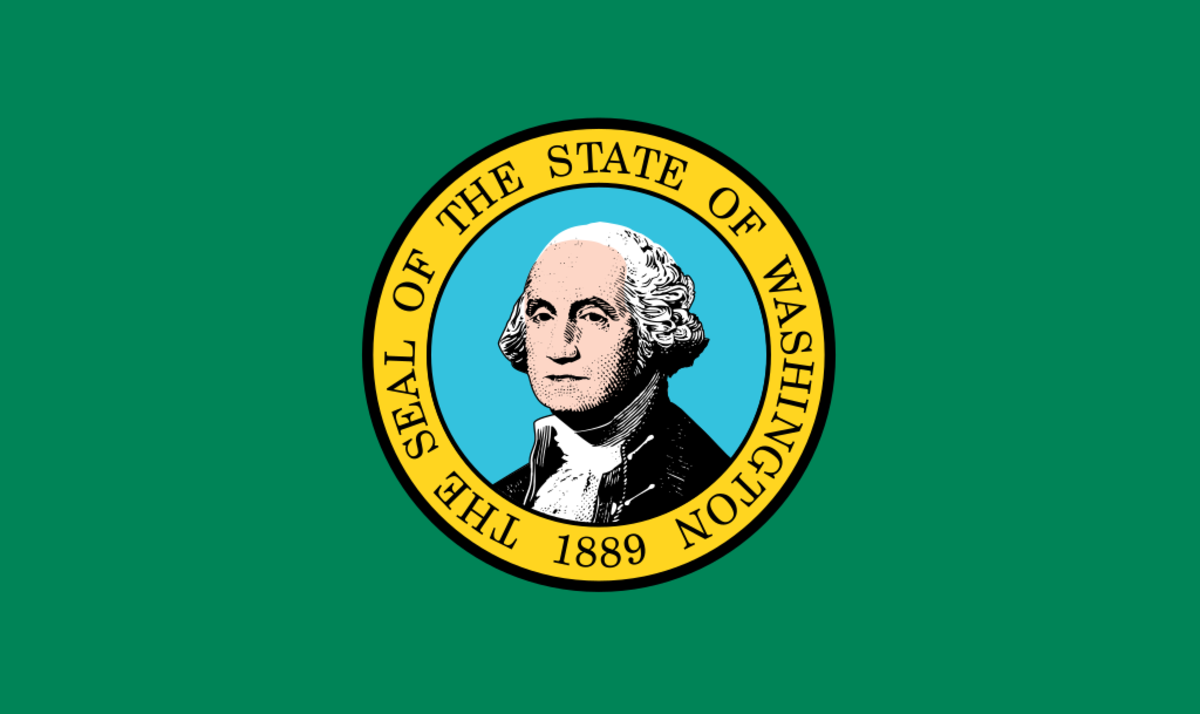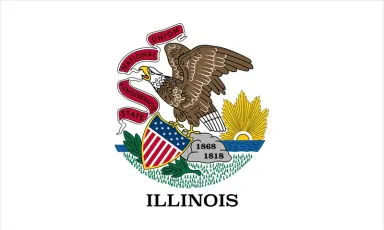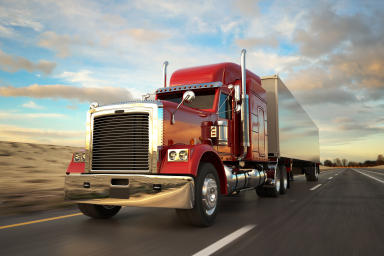Washington State Trucking Laws

Washington is one of the five most trade-dependent states in the country, and its bustling commercial activity reflects its significance within America’s economic framework. It shares a border with Canada, the biggest trade partner of the US, and its shores are the site of major American ports closest to Asia. About 70% of freight on Washington roadways is transported via trucks, and 80% of the state’s communities rely solely on the trucking industry to deliver their goods.
That trucks are such an intrinsic part of the state’s way of life naturally points to a high incidence of trucking-related accidents. Data gathered by the Washington State Department of Transportation (WSDOT) for 2022 recorded 6,280 crashes involving heavy trucks, 1,412 of which resulted in injuries and 81 crashes resulting in fatalities.
Truck accidents are often catastrophic, causing serious property damage and severe risks to life. If you or a loved one has been involved in a truck accident, know that Washington State has legal protections for accident victims, claimants, and plaintiffs, on top of the commercial trucking laws and regulations it has established to prevent accidents.
Washington Commercial Vehicle Maintenance and Safety Compliance Audits
By federal and state law, trucking companies have a responsibility to the general public to properly maintain their fleet. Companies must submit to a compliance review, which is an on-site examination that determines motor carriers’ safety fitness and on-road performance.
The compliance review follows guidelines set by the Federal Motor Carrier Safety Administration (FMCSA) through its Compliance, Safety, Accountability enforcement program. The review appraises adherence to all state and federal safety regulations; checks documentation related to truck drivers’ training, credentials, licensing requirements, and accident history of the past two years; and inspects equipment at carrier headquarters. Individual motor vehicles are evaluated for the need for maintenance and repairs, and truck parts and accessories are tested for safe operations.
Trucking companies must immediately address any safety violations discovered. All investigation findings are stored, allowing government officials and regulators to keep an eye on erring trucking companies. The usefulness of these safety audits is twofold: they can greatly help prevent trucking accidents related to poor maintenance and failure to comply with commercial vehicle regulations, and they can assist truck accident victims in establishing any negligence on the part of the motor carrier.
Hours of Service for Washington Truck Drivers
The Large Truck Crash Causation Study of the FMCSA noted that 13% of commercial motor vehicle drivers were deemed fatigued at the time of their crash. A fatigued driver on the road is a hazard; given the outsized dimensions of trucks and the kind of cargo carried, there can be fatal consequences to a trucker falling asleep at the wheel.
Federal laws aim to prevent driver fatigue and, thus, trucking accidents, especially in light of the typically long and tedious hours that truck drivers devote to the road. Strict regulations by the FMCSA dictate hours of service. The maximum average work week for truck drivers is 70 hours, with an 11-hour daily driving limit and a 14-hour work day. Truck drivers who meet this maximum limit within a week can only resume driving if they rest for 34 consecutive hours. Truckers must also take one 30-minute break in the first eight hours of their shift.
Curfew Hours and Holiday Restrictions
Commuter curfew hours on certain roadways are in effect for trucks that are required to display “oversized load” signs. The state also restricts movement at night, which it sets at half an hour after sunset to half an hour before sunrise. Trucks that do not exceed set dimensions—12 feet wide, 14 feet 6 inches high, and 105 feet long—may travel at night. A truck must bear “nighttime movement approved” permits if it exceeds these dimensions. Truck movements are also restricted in winter weather conditions, such as along roads where “Traction Advisory: Oversize Vehicles Prohibited” and other similar warning signs are posted.
Trucks operating with a special overweight or over-dimensional permit are prohibited from plying state highways on these holidays: New Year’s Day, Memorial Day, Independence Day, Labor Day, Thanksgiving Day, and Christmas Day. The restriction begins at noon the day before the holiday.
Legal Vehicle Weights and Load Securement
Washington state legislation dictates gross vehicle weight (GVW), computed according to tire size, axle weight, and the set vehicle weight table. Trucks that have a gross load on any single axle over 20,000 lbs are prohibited from traversing Washington roadways.
Trucking companies can secure a permit for superloads—a vehicle or combination of vehicles whose non-divisible load exceeds 16 feet wide, 16 feet high, 125 feet in load length, or 200,000 lbs. The requirements, however, are stringent—operators must prove that the superload is necessary and “in the public interest,” with some cases needing military approval.
The Washington State Patrol is in charge of ensuring that trucks in operation meet the legal weight limits. Ports of entry and nearly 50 locations across the state have fixed scales, plus weigh station locations with wheel load scales in key areas. The WSDOT also maintains 11 locations capable of electronically screening weight.
Going overweight without a permit will have operators facing fines and penalties, computed by how many pounds a truck goes over the limit. Fines range from $0.03 per pound overweight and $120 plus $0.12 per pound overweight to $2,640 plus $0.30 per pound overweight for trucks that go 20,000 lbs over the legal vehicle weight.
If you have ever felt nervous driving behind a truck with a considerable amount of cargo, know that Washington truck operators are required by state law to properly secure their freight. The load must also be covered to prevent debris from flying off the truck and causing property damage and bodily injury to others. The state considers failure to secure and cover loads, with criminal negligence, a gross misdemeanor.
Alcohol and Drug Testing for Washington Truck Drivers
The WSDOT recorded 6,285 crashes in 2022 where a motorist was driving under the influence of alcohol. The risk is higher in the trucking industry. The itinerant livelihood and lifestyle of truckers historically gave rise to alcohol abuse, and the need to stay awake on the road can spur some long-haul truck drivers to rely on dangerous stimulants to break the monotony.
On top of driving while under the influence of controlled substances being illegal, state laws work to ease truckers’ occupational barriers.
Commercial driver’s license (CDL) holders are subject to random alcohol and drug testing as part of the safety compliance and enforcement program outlined above. Alcohol tests are mandatory following a truck accident and upon a trucker’s return to duty if he was taken out of service for alcohol conduct violations. Trucking companies are also legally permitted to test a commercial vehicle operator under “reasonable suspicion” of alcohol misuse.
Truckers are also subject to roadside tests by law enforcement. Commercial drivers are taken off the road for 24 hours if their blood alcohol content exceeds 0.04 on a breath test. Refusal to take part in random testing disqualifies a CDL for one year. If a trucker is carrying hazardous materials, refusing a test disqualifies a CDL for three years.
Averting alcohol abuse goes beyond a trucker’s professional life: if their personal driver’s license is suspended, canceled, or revoked because they are found to be driving under the influence, their commercial driver’s license will be suspended for one year. A second offense revokes a CDL for life.
Washington Commercial Trucking Insurance Requirements
All motor vehicles registered in Washington must follow the state’s mandatory insurance law and opt for one of the following:
Carry liability insurance with liability limits of at least $25,000 for injuries or death to another person, $50,000 for injuries or death to all other people, and $10,000 for damage to another person's property.
Apply for a certificate of deposit to pay for liability insurance with the state’s Department of Licensing.
Have a liability bond of at least $60,000 filed by a surety bond company that is authorized to operate in the state of Washington.
There are additional minimum liability insurance requirements for trucks, and these vary according to vehicle weight and the cargo being transported, plus distinctions on whether the vehicle travels interstate or intrastate. Commercial vehicle types that are considered general commodities carriers and have a minimum level of financial responsibilities are as follows:
Vehicles over 10,000 lbs GVW with non-hazardous cargo: $750,000 combined single limit (CSL)
Vehicles under 10,000 lbs GVW with non-hazardous cargo: $300,000 CSL
Vehicles carrying hazardous property (any quantity of Class A or B explosives, any quantity of poison gas, or highway route controlled quantity of radioactive materials): $5,000,000 CSL
Vehicles carrying hazardous substances in bulk, in vehicles with capacities exceeding 3,500 water gallons, explosives A or B (any quantity), poison gas (any quantity), liquefied compressed gas or compressed gas in bulk (containers exceeding 3,500 water gallons), or highway route controlled quantity radioactive materials: $5,000,000 CSL
Vehicles carrying oil and hazardous waste, hazardous materials, and hazardous substances not listed above: $1,000,000 CSL
Meanwhile, household goods movers must meet the above minimum liability insurance requirements as well as the following cargo insurance requirements: $10,000 for vehicles under 10,000 lbs GVW and $20,000 for vehicles over 10,000 lbs GVR.
Washington Is a Fault State for Insurance Claims
In Washington, the party responsible for a truck accident bears the financial responsibility for the victim’s losses. The state follows the fault-based system for insurance claims, which gives truck accident victims more recourse in pursuing compensation when they have incurred property damage or sustained bodily injury due to a crash. Victims can file a claim with their own insurance carrier or they can file a third-party claim against the at-fault truck operator’s insurance company, up to policy limits.
Truck drivers are held to a higher standard than non-commercial vehicle operators, as outlined in the above trucking laws and regulations. Trucking companies, for example, can be held liable if there is evidence of negligent hiring practices. Because there are more entities to be held accountable and the minimum liability insurance requirements are high, insurance pay-outs from at-fault parties and their insurance carriers are considerably higher than in car accident cases.
How Much Can Someone Sue for a Truck Accident in Washington State?
Truck accident insurance claims tend to be complex, and sometimes victims may feel that the compensation they would receive through the at-fault party’s liability insurance will not be enough to cover their losses. In which case, personal injury lawsuits are another recourse for truck accident victims to get justice and secure damages for their recovery.
Accident victims can pursue compensation for their economic and non-economic losses through a lawsuit, and the amount they can sue at-fault parties for depends on the specifics of their case. There is no set amount or even average value, as the following factors are considered when computing the monetary damages or financial award that you can seek:
Past and future healthcare costs of addressing bodily injury; includes emergency hospital bills, long-term medical costs, medication, and physical rehabilitation
Lost wages due to the accident, including the loss of future earnings
Pain and suffering, such as the emotional distress or trauma following the incident or the mental anguish arising from physical disfigurement
Property repair and replacement, such as for totaled cars
Experienced truck accident attorneys can not only assist victims with determining whether an insurance claim or a lawsuit is the better option—they can also assist potential plaintiffs in computing the amount of financial compensation that can adequately ease traumatic losses.
Washington Is a Pure Comparative Negligence State for Commercial Trucking Accident Lawsuits
Washington follows the pure comparative negligence rule when awarding plaintiffs monetary damages in a trucking accident lawsuit. The plaintiff and the defendant may each be assigned a portion of the blame during the trial and the compensation that a truck accident victim receives is reduced according to his or her share of responsibility for the accident.
For example, a truck accident victim is seeking $1 million in damages. If a jury finds that the plaintiff was 20% at fault for the crash, the damages will be reduced by 20%, and he or she will only be awarded $800,000. As long as the plaintiffs are not 100% responsible for the accident, they are eligible to receive damages for their losses.
Commercial vehicles bear a greater responsibility on the road, and any failure to comply with regulations can lead to disaster for the general public. A truck driver may be sued for negligence for falling asleep behind the wheel, but a suit can also be brought against the trucking company if it is proven that the latter imposed longer hours of service on their operators, if curfew hours were not followed to meet a quota, if they failed to properly maintain their trucks, or even if they failed to train their employees. Truck manufacturers could be sued if the crash was caused by a malfunction in hardware, and freight shippers could be brought to court if they had a hand in improperly securing overweight cargo that harmed the plaintiff.
Washington Statute of Limitations for Truck Accident Lawsuits
Truck accident victims have three years from the date of the crash to file a lawsuit against at-fault parties, and victims forfeit their right to sue if this timeframe is not met. The personal injury statute of limitations is in place to give possible plaintiffs enough time to gauge the extent of their injuries and their effect on their quality of life, as well as to determine which parties were negligent and liable for the victim’s losses.
For victims who were minors at the time of the accident, the statute does not begin until they turn 18. The statute also pauses if the defendant evades justice by relocating to another state.
Because of the complexity of truck accident cases and the scope of work needed to hold all possible negligent parties accountable, it is always better to begin the process of pursuing justice as soon as you are able.
Legal Resources for Washington Trucking Accident Victims
Washington Law Help
Washington Law Help is a hub for guides and resources for seniors and low-income Washington residents who need legal assistance. It publishes legal education materials, fills out legal paperwork for free, and provides other tools that can help citizens demystify the civil justice system. It also provides individuals who wish to represent themselves in court with salient details on their rights and responsibilities.
Washington State Bar Association Legal Directory
The Washington State Bar Association regulates the state’s over 40,000 legal professionals, as authorized by the Washington Supreme Court. It maintains an online directory of attorneys, limited practice officers, and limited license legal technicians. Commercial truck accident victims can set the search filters to look for legal professionals who practice personal injury law. Searches can be further filtered by attorney office location and languages spoken.
Washington State Bar Moderate Means Program
The Moderate Means Program is run by the Washington State Bar and the law schools of Gonzaga University, Seattle University, and the University of Washington. It links clients with moderate incomes—those who fall between 200% and 400% of the Federal Poverty Level—who are dealing with consumer legal issues with attorneys who are ready to represent them at a discounted rate. Some of the consumer issues its attorney network handles involve the purchase, financing, or repair of a vehicle.
Expertise.com StaffAuthor
Step into the world of Expertise.com, your go-to hub for credible insights. We don't take accuracy lightly around here. Our squad of expert reviewers, each a maestro in their field, has given the green light to every single article you'll find. From rigorous fact-checking to meticulous evaluations of service providers, we've got it all covered. So feel free to dive in and explore. The information you'll uncover has been stamped with the seal of approval by our top-notch experts.




